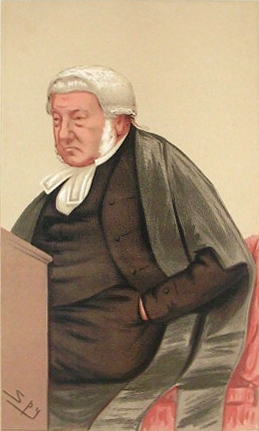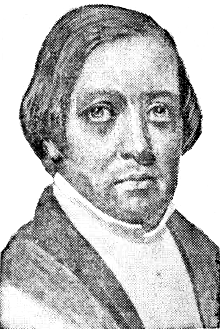Related Research Articles

Edward Law, 1st Baron Ellenborough,, was an English judge. After serving as a member of parliament and Attorney General, he became Lord Chief Justice.

Edward Gibson, 1st Baron Ashbourne, was an Anglo-Irish lawyer and Lord Chancellor of Ireland.

George William Wilshere Bramwell, 1st Baron Bramwell,, was an English judge.
Barry Yelverton, 1st Viscount Avonmore, PC (Ire) KC, was an Irish judge and politician, who gave his name to Yelverton's Act 1782, which effectively repealed Poynings' Law and thus restored the independence of the Parliament of Ireland. This achievement was destroyed by the Act of Union 1800, which Yelverton supported. By doing so, he gravely harmed his reputation for integrity, which had already been damaged by his leading role in the conviction and execution for treason of the United Irishman William Orr, which is now seen as a major miscarriage of justice.

Robert Baldwin Sullivan,, was an Irish-Canadian lawyer, judge, and politician who became the second Mayor of Toronto, Upper Canada.

Simon Denis Brown, Baron Brown of Eaton-under-Heywood, was a British barrister and judge. He was a Law Lord, then a Justice of the Supreme Court of the United Kingdom from 2009 to 2012.
John George PC, QC was an Irish politician and judge.

Arthur Hugh Smith-Barry, 1st Baron Barrymore,, was an Anglo-Irish Conservative politician.
Rickard Deasy PC was an Irish lawyer and judge.
SirJohn Richard Quain (1816–1876) was an Irish barrister and judge in England.
Sir Maziere Brady, 1st Baronet, PC (Ire) was an Irish judge, notable for his exceptionally long, though not particularly distinguished tenure as Lord Chancellor of Ireland.
David Richard Pigot, PC, KC was one of the leading Irish judges of his time. His children included John Edward Pigot, a noted music collector and one of the founders of the National Gallery of Ireland. His grandchildren included the Australian astronomer and Jesuit Edward Pigot.
John Rogerson (1676–1741) was an Irish politician, lawyer, and judge who became Solicitor-General, Attorney-General for Ireland, and Lord Chief Justice of the King's Bench in Ireland.
Sir Edward Sullivan, 1st Baronet, PC (Ire) was an Irish lawyer, and a Liberal Member of Parliament for Mallow, 1865–1870 in the House of Commons of the United Kingdom of Great Britain and Ireland. He was also Solicitor General for Ireland, 1865–1866, Attorney General for Ireland, 1868, Master of the Rolls in Ireland, 1870. Created a baronet, 29 December 1881, from 1883 to 1885 he was Lord Chancellor of Ireland.
Henry Hene or Henn was an English-born judge who had a distinguished career in Ireland, and held the office of Chief Baron of the Irish Exchequer.
Sir John Patteson was an English judge.
Samuel Mountifort Longfield was an Irish lawyer, judge, mathematician, and academic. He was the first Professor of Political Economy at Trinity College, Dublin.
Richard Pennefather (1773–1859) was an Irish lawyer and judge of the nineteenth century, who enjoyed a reputation for legal ability and integrity. He has been highly praised, in particular, for his scrupulously impartial conduct of the politically sensitive Doneraile Conspiracy Trials of 1829. He was the elder brother of Edward Pennefather, Lord Chief Justice of Ireland.
John Bennett was an Irish politician, barrister and judge. His granddaughter married the celebrated writer Sheridan le Fanu.

Sir James Charles Mathew was an Irish-born judge. Born in an Irish Catholic family in Cork, Mathew was educated at the largely Protestant Trinity College, Dublin, before joining the English bar. In 1881, although still a junior barrister, he was appointed to the High Court of Justice, where he sat in the Queen's Bench Division and was said to be the best nisi prius judge of his time. He was promoted to the Court of Appeal in 1901, before resigned from the bench for health reasons in 1905.
References
- This article incorporates text from a publication now in the public domain : Stephen, Leslie; Lee, Sidney, eds. (1891). . Dictionary of National Biography . Vol. 26. London: Smith, Elder & Co.